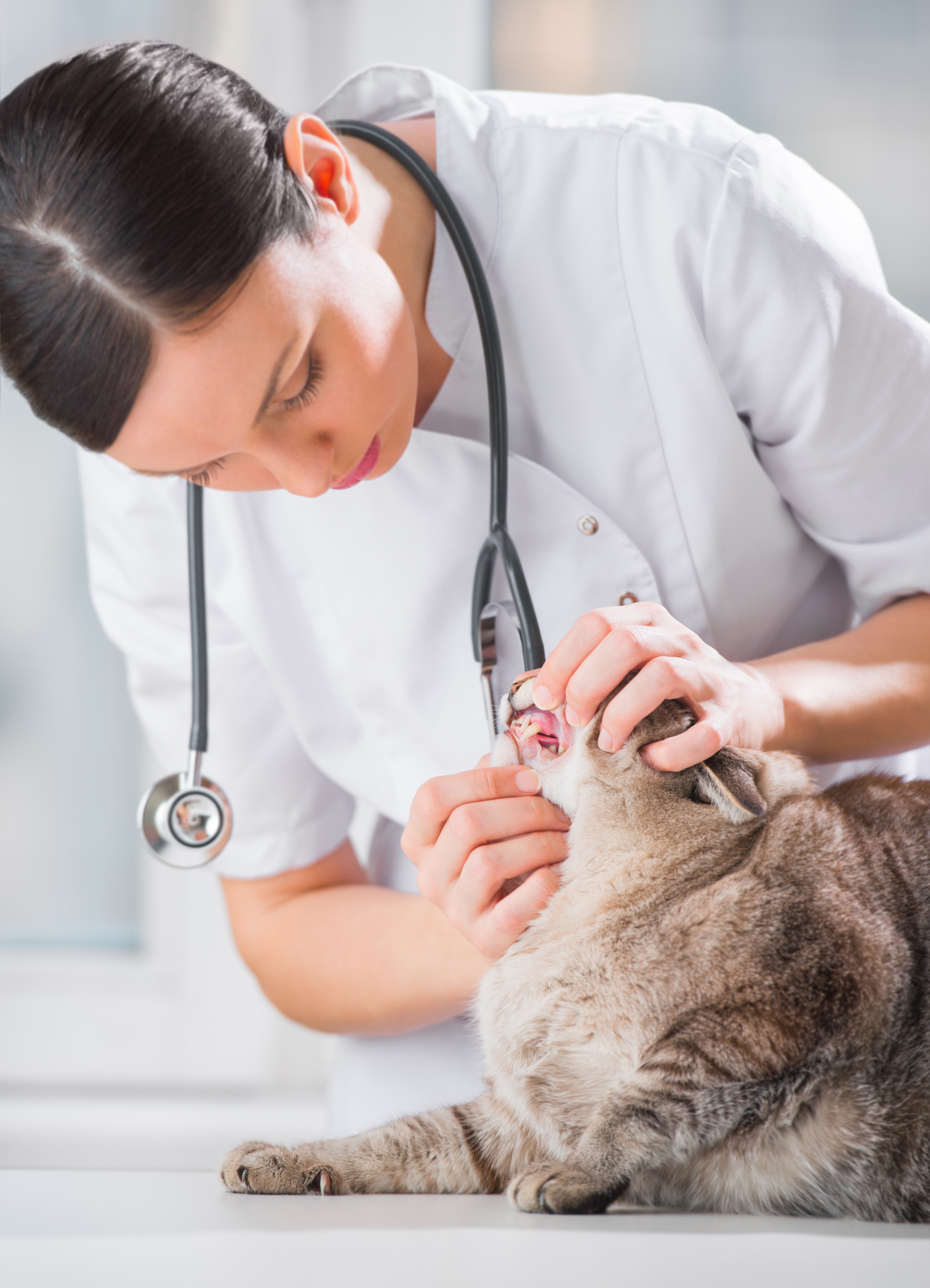Periodontal disease is a bacterial infection of the gums and can be a very serious problem in cats and dogs. Periodontal disease results in the early loss of teeth in your pet. Some pets are more susceptible to it than others. The pet with periodontally involved loose and infected teeth may be very uncomfortable; as well, other organs of the body may be at risk for spread of infection from the mouth. Periodontal disease can be prevented by periodic scaling and polishing of the teeth, particularly at and under the gum line, to remove the deposits (plaque and calculus or tartar) that accumulate on the tooth and root surfaces. Once periodontal disease is present it can be managed with several treatment methods in addition to the scaling and cleaning of the teeth. Treatment of your pet may include one or more of the following procedures to assess the level of health, and to treat the infection.
Dental Health & Assessment
Intra-oral radiographs are taken to evaluate the degree of periodontal bone loss, root abnormalities or infection.
Root planing and gingival curettage are performed to clean and smooth the root surfaces in areas of pocket formation and to remove diseased tissue from pockets.
Oral surgery to remove excessive gingival tissue, allow access to deep pockets to clean the roots completely and remove damaged bone, or to remove abnormal gingival attachments may be necessary to save your pets teeth.
Extractions. We, like you, want your pet to have as many healthy teeth as possible. Unfortunately, some teeth may be too diseased to save. In that case, some teeth may require extraction for your pet’s health and comfort. Dogs have 42 teeth and cats have 30. They can do quite well with a few missing teeth. Even with the loss of numerous teeth many pets will function quite normally and will be happier and healthier with painful, infected teeth eliminated.
Prevention of Periodontal disease is the best treatment and this requires periodic scaling and polishing of the teeth under general anesthesia, home care (brushing, rubbing or rinsing the teeth) to reduce the daily bacterial accumulations of plaque, along with chewing exercise on hard food or biscuits and safe chew toys. Chew toys should be selected carefully as many pets will crack their large chewing teeth if they get to vigorous with rawhide bones, nylon bones or knuckle bones.



